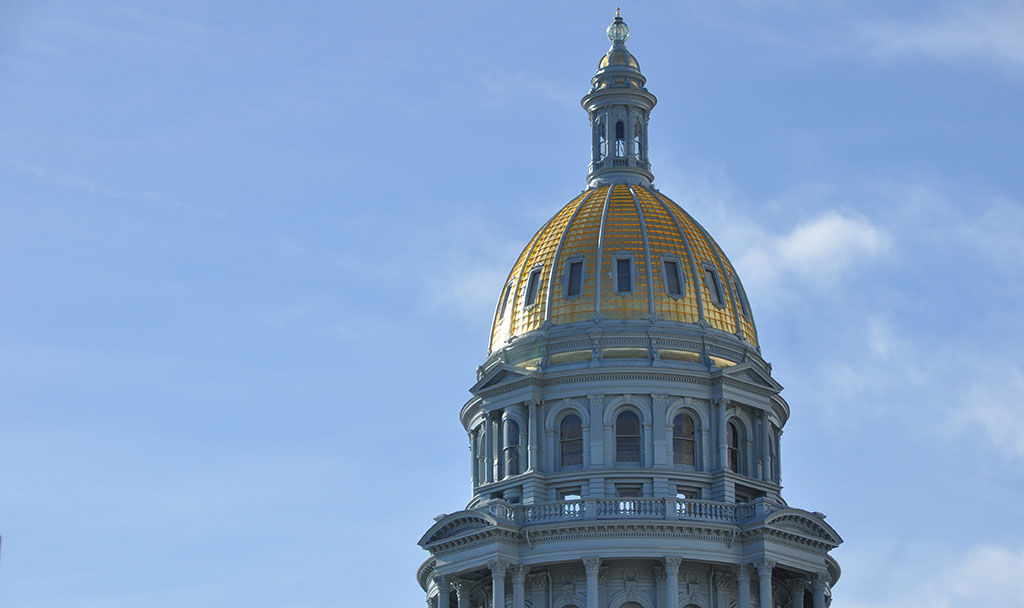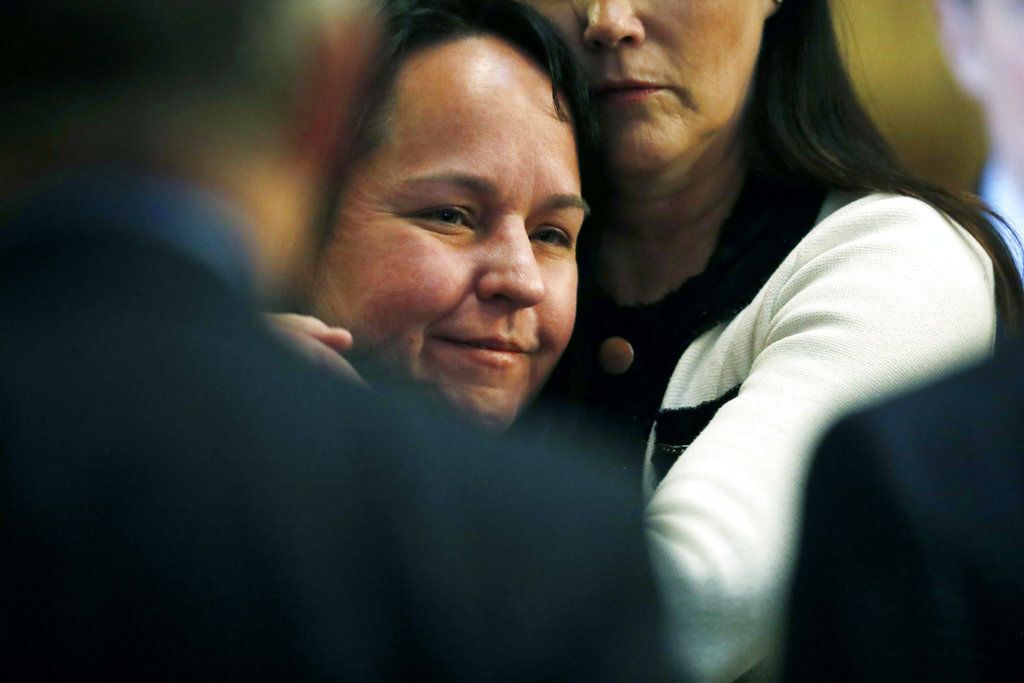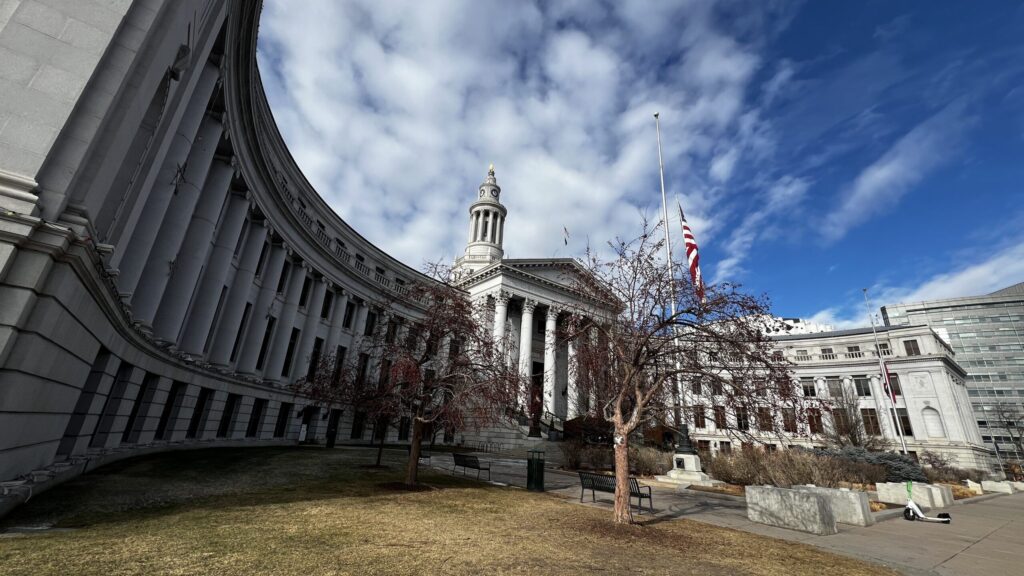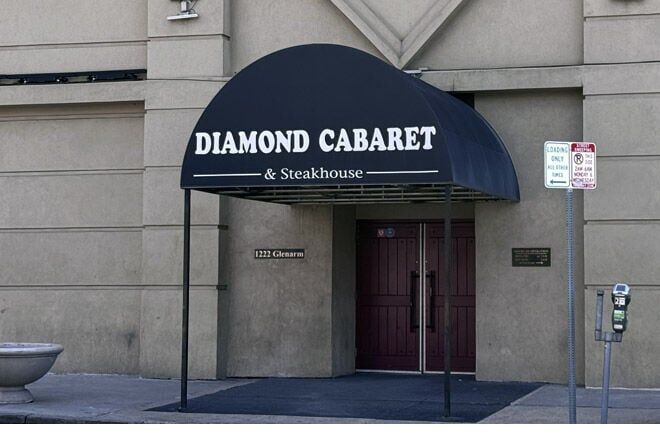Howland expulsion from 1915 has lessons for 2018 House, lawmaker says

On Friday, the Colorado House, for only the second time in its history, will decide whether a lawmaker should be expelled for misconduct. It’s been 103 years since lawmakers voted to kick a member out, but that situation has some lessons for the 2018 House as it begins to consider an expulsion resolution, according to Republican Rep. Hugh McKean of Loveland.
On Tuesday House Majority Leader KC Becker of Boulder informed the House that an investigation into sexual misconduct by Thornton Democratic Rep. Steve Lebsock, involving 11 complaints and five women, had been found credible. She sponsored a resolution, introduced late that afternoon, that will seek to have the three-term lawmaker expelled from the House. That vote is expected to take place on Friday. The vote to expel requires 44 votes, or two-thirds of the 65-member House.
McKean told Colorado Politics that there are lessons to be learned from how lawmakers handled the 1915 case that that could take some of the politics out of the Lebsock case.
In 1915, it was a charge of perjury, allegedly committed by Republican Rep. William Howland of Denver, that forced his removal from the lower chamber. Howland was serving his first, and as it turns out, last, year in the state House. The vote to expel was 60 to 0 with five members absent or excused, according to newspaper accounts from the day.
Howland was among the members absent on the day of his expulsion – March 15, 1915 – because he was in jail, arrested on a perjury charge following an indictment by a Denver County grand jury. He wasn’t able to come up with the $2,000 bail and spent the night in the county lockup.
There were two charges originally levied against Howland in the General Assembly: the perjury charge and a charge of taking a $15 bribe. The money was delivered to him on the floor of the House by a messenger of the Postal Service, who later testified he couldn’t remember who gave him the package.
But according to a story in the Western Newspaper Union News Service of March 16, the money came from a Dr. Mary Bates of the Women’s Protective League. The league was formed to “protect girl children” and as a result of “administrative indifference” to the plight of Colorado girls.
Dr. Bates allegedly gave the $15 to a messenger, who was to deliver the money to Howland, who was then expected to give it to a private detective who was “shadowing” officers and a judge from the Denver Juvenile Court. According to the Wichita (Kansas) Beacon, the House at that time was considering legislation to abolish the Juvenile Court. Judge Ben Lindsey sought warrants from Denver District Attorney John Rush to have Bates and several other people connected to the affair arrested for attempting to defame his character, but was refused.
Howland allegedly accepted the package on Feb. 9. On March 3, a committee of five, made up of rank-and-file House members, was appointed to investigate the two charges.
The motion to approve the resolution appointing the five was made by a Rep. Dunklee, and seconded by none other than Howland, who had requested an investigation into his conduct.
Thirteen witnesses were called to testify in a public meeting, held in the House chambers on March 4. According to the Beacon, Howland testified that the money came from a business partner and represented proceeds from the sale of a hog.
On March 12, a second hearing was held with 14 witnesses. Howland also testified in the second hearing, but according to the House Journal, his story changed dramatically between the first and second hearing. Howland admitted the first story he told was “absolutely false and that he had conspired to conceal the truth” and to mislead the committee.
The committee could not ascertain with any certainty that Howland had accepted a bribe. But the perjury charge was much easier to prove, and the committee recommended that Howland be expelled as “being guilty of conduct unbecoming a member of the body, and that his seat be and is hereby declared vacant.”
Howland, from his jail cell, reportedly told several visiting House members that “I’m the first representative to land in jail, but I’ll not be the last. There’ll be more of you soon.”
Howland was cleared of the Denver perjury charge in a trial by judge. The District Attorney later sought a review of the decision from the Colorado Supreme Court, which ruled the judge had been in error to dismiss the charge.
McKean applauded the 1915 decision to appoint an investigative committee of rank-and-file members, rather than placing all the responsibility in the hands of one person.
“We have a bifurcated responsibility,” he told Colorado Politics. One is to the voters; the second is to the institution of the House. The process followed by the House is incredibly important, he said, but cannot be one that puts all the responsibility into the hands of one person: the House Majority Leader.
McKean believes that voters would have more trust in the system if a committee of peers who share in the responsibility was established.
The resolution to expel would then come from that committee, he said.
“I will carefully consider the resolution for expulsion, because the integrity of the institution is that important,” McKean added. “But it also highlights the need for an effective process that doesn’t allow us to be in this position again. The responsibility to the institution has to be jealously guarded, but we must be extremely careful with our voters,” who also have their own process – a recall.
Update: McKean’s idea has precedent other than Howland. In 2008, a committee of five rank-and-file House members was convened to decide on a punishment for Republican Rep. Doug Bruce of Colorado Springs. The group was empaneled one day after Bruce was sworn in, and after he kicked a Rocky Mountain News photographer who was taking his picture during the opening day prayer. The committee recommended censure. The House voted 62-1 (with then-Rep. Kevin Lundberg of Berthoud in opposition) to censure Bruce , the only time a censure vote has been taken in the General Assembly.
Correction: Rep. Doug Bruce chose not to vote on his censure; he was present for the vote but excused from voting.














